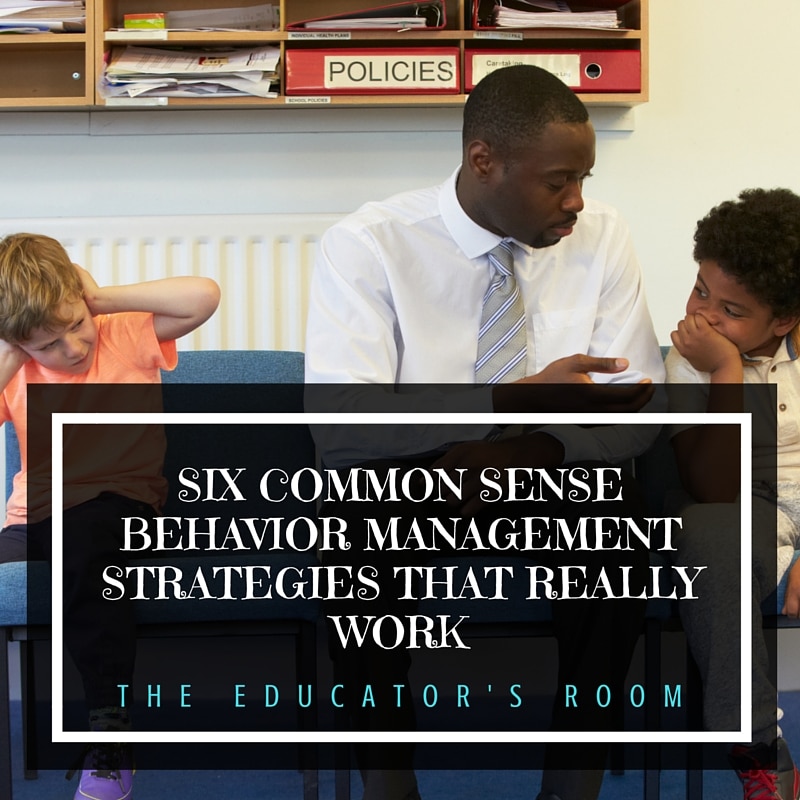No matter what grade level or subject you teach, you will always come into contact with students who either challenge your authority or disrupt the class in some way. Whether you have the student that constantly makes weird noises, the student constantly gets out of his or her seat, or the student who wants to argue with your every request, it is possible to get those problem behaviors under control, and you don’t have to rule with an iron fist to do it. The following common sense behavior management strategies really work, and they could quite possibly save your sanity.
[bctt tweet=”Struggling with behaviors? Here are some behavior management strategies that really work!”]
Poker face. Keep your game face on and stay calm. If you show that student who argues that you are bothered even a little by it, you have lost. Arguing back means that you have given power to a student who is probably seeking it. Instead, just calmly repeat your directions and provide a time limit for compliance. Just be ready with a consequence for failure to comply.
Save your write-up forms. An administrator of mine made a good point during a staff meeting once when talking about writing students up. If you write up students all of the time, students will never learn that they need to respect you. It’s like telling your child “just wait until daddy gets home” instead of handling discipline problems yourself. Write-ups should mainly be reserved for disciplinary issues that impact the safety of others in the classroom. Everything else, you should try to negotiate on your own.
Parent contact matters. A lot of students will say that they do not care if you call home, but they really do. That being said, if you want the parents on your side, do not just call when the child is in trouble. Get to know the parents of your students. Call to celebrate accomplishments. When it comes time to call to elicit their help in a disciplinary issue, they will do much more to help you.
Get student input. Many students go against the grain when they do not feel that you listen to them. In my class, I have the students complete teacher input surveys and then discuss the findings with them, especially if they have concerns. They need to feel heard. You can ask students to provide suggestions for how to manage their behavior as well. If they agree with the plan, they are much less likely to want to complain about it.
Provide consistent praise. Students who feel that you are constantly getting on to them, whether it is for things they are really doing wrong or not, will begin to either shut down or become argumentative. Be mindful of how many times you get on to a student versus how many things you praise them for doing right. All kids want to know that they get noticed for doing well.
Reward systems work! You can do whatever works for your classroom, but in mine, we use a ticket system and I allow students to “purchase” both tangible and non-tangible prizes on Fridays. I asked the students what types of things they would work for and used their suggestions to create the list of items they could buy with their tickets. It is amazing how much more students will do for something as simple as a ticket. Make sure that your toughest kids have something they want on the list!
Managing student behavior does not always mean thinking outside the box. When we get overwhelmed by student behavior issues, sometimes it is difficult to remember the common sense approach. No behavior management system is one-size-fits-all, but it is always a good idea to start with what works for the majority and then fine-tune things for those students who need just a little extra attention.





